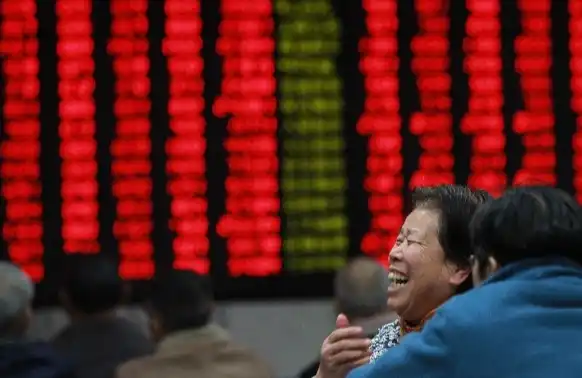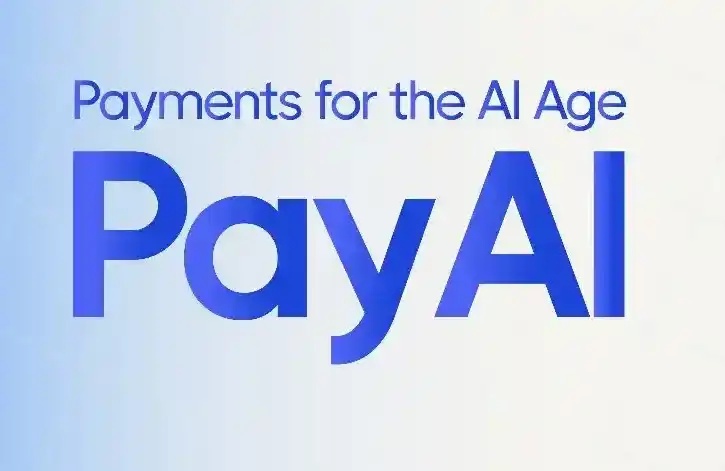Stepping Down Soon, SEC Chair Gary Gensler Addresses 11 Key Cryptocurrency Market Questions
Original Article Title: "Countdown to Departure! SEC Chair Gary Gensler Gives Public Interview, Responding to 11 Key Questions on Cryptocurrency and the Capital Market"
Original Article Author: Weilin, PANews
Only 6 days left until the United States President-elect Donald Trump's inauguration. On January 14, Securities and Exchange Commission (SEC) Chair Gary Gensler gave consecutive interviews to CNBC and Yahoo Finance, where his leadership style and policy legacy became hot topics. Previously, Gensler had announced his resignation from the SEC Chair position on January 20.
Based on these two interviews, PANews has compiled 11 important questions about cryptocurrency and the capital market, and how Gensler responded to them.
1. On January 14, the U.S. Securities and Exchange Commission (SEC) took action against Robinhood and some private equity firms. With less than a week left in your term, can we expect more actions from the SEC?
We are entrusted by the public to ensure that the capital markets work for them, protect investors, and ensure people comply with the law. We have a serious responsibility that we will fulfill, regardless of who is in leadership. There will be a transition in leadership this week and next week, but we will continue to ensure that the capital markets serve investors and that market participants comply with the law.
That's our job. Fundamentally, how do you build trust in capital markets if one doesn't stick to the facts and the law? In fact, those in the market who act with integrity benefit, as more investors are willing to enter the market and participate.
2. What does the next government mean for the SEC in your view? Are you concerned that what you have done during your term will be overturned by the next administration?
The achievements we have made during this administration are quite significant. I took office after the GameStop incident, which was at the peak of a SPAC frenzy, and we implemented the most significant reform in the stock market. I would say we, with the other commissioners, achieved this reform in a bipartisan and bipartisan-supported manner. We also made significant reforms in the treasury market. I can't imagine anyone wanting to go back to longer settlement cycles; we shortened the settlement cycle to one day.
I also can't imagine anyone wanting to revoke the first federal privacy notice given to the public, stating that if your information is disclosed by an investment advisor or broker, you will be notified. I dare say, I don't think anyone would want to roll back these measures. They won't make it easier for insiders to trade on material non-public information. So, I am very satisfied with the work we have done.
Of course, democracy has its consequences, and the next administration may choose a different direction, but I believe these are all good policies to reduce costs and promote capital market integrity.
3. Some people believe that cryptocurrency supporters helped Trump win the latest election. How do you respond to these views?
Building trust in the capital markets is crucial; people need to abide by laws passed by Congress, and this great institution enforces those laws. Think of this issue: we have rules on the highway, traffic lights, and police officers. If you drive a hybrid car on the highway, does it mean you are exempt from following traffic regulations? Or does an electric car on the highway not need to comply with regulations? We enforce the law consistently in the financial markets, but the cryptocurrency space is not compliant.
I also want to say that voters are smart enough to know that their vote is based on other issues, such as inflation or other economic problems. I have not seen any signs that cryptocurrency was a significant factor influencing voter decisions.
4. You have achieved a lot during your tenure, mentioning shortening settlement cycles, reforms in the money market funds and Treasury market, among others. However, you lost 4 out of 5 challenges to your rules, exceeding the total of the first three chairmen. Is there anything you hope to do differently?
For anyone working in government, this is an interesting time because the courts are undergoing significant changes. The great hockey player Wayne Gretsky once said something, but the essence is that you should play where the puck is going, not where it has been. The courts here are like the puck. Where are the courts heading? They are reinterpreting the law, be it environmental, communications, health, or securities law.
We have always acted within the law, operating based on laws passed by Congress. We have crafted 46 rules crucial to the capital markets, most of which have not only been proposed but also implemented. People can now benefit from these rules, such as knowing if corporate executives received compensation based on erroneous financial reports and whether they need to recoup that information. As you said, we're reforming in the money market arena, but at the same time, the SEC now has better information about private funds. So we have achieved a lot together.
5. You have repeatedly warned about the risks of cryptocurrency. In the past year, to some extent, the courts have compelled you to approve Bitcoin and Ethereum ETFs, opening up cryptocurrency investment to the public. Do you wish for a different outcome? Are investors facing greater risks as a result?
Bitcoin itself is not a security, neither I nor my predecessor has said that Bitcoin is a security, nor have we said that Ethereum is a security. I believe that investors in Bitcoin and Ethereum, including the retail folks you are talking about, had an opportunity to invest well before ETF products. During my tenure, we approved a Bitcoin ETF, which was a spot ETF that came later. Investors had better protection, lower fees, stricter oversight, monitored exchange, and these products were registered and consistent with SEC requirements. My predecessor had turned down these products, and we followed J.J. Clayton's lead. Bitcoin and Ethereum make up 70% to 80% of the crypto market. What I am really focused on is the other part, the thousands of tokens that continue to exist, conditions where investors are essentially investing, or betting on a project, they need the proper disclosure. The law says that is what you should get disclosure on, but these tokens are not currently compliant. I am not predisposed to any one project.
6. You seem to be intentionally separating Bitcoin from the rest of the industry, are you starting to have a new view of Bitcoin? Do you see Bitcoin as having intrinsic value, a store of value? Or do you think that looking back in 10, 15, 20 years, it will be the tulip mania of the 18th century? You taught at MIT, you should have some thoughts, have you read 'The Bitcoin Standard'?
It's hard to predict. I know the way you look at these other cryptos, I know you have a negative view. But as for Bitcoin, we at the SEC have never said that it is a security.
Yes, (I've read it), I think of Bitcoin as a highly speculative and volatile asset. But there are 7 billion people in the world, everyone wants to trade it. Just as we've had gold for 10,000 years, we have Bitcoin now, and maybe there will be something else in the future. Those thousands of other projects need to show their use case and prove they have a real fundamental, or they won't last.
7. You don't like those other coins?
I've never owned those coins, and I have been consistent on this for 7, 8 years now.
8. How do you view the concept of prediction markets, especially the decision of Kalshi to hire Trump's son as an advisor?
I don't have a view on who others hire. But the capital markets themselves are vast, a $120 trillion capital market, whether it's stocks, bonds, or ultimately prediction markets, are all about predicting future cash flows, or predicting future opportunities for companies. So, those markets, in a sense, are all about prediction markets, and that's one of the reasons I am proud of some of the reforms we've made. We've improved disclosure, making sure only material things are disclosed to investors so they can make their own judgments about the future based on that information.
9. Critics argue that the SEC relies too heavily on litigation rather than legislation. What is your perspective?
We have laws. Congress has passed these laws, and of course, they can be changed. But part of the crypto space, the investing public is investing based on these projects, many of which are subject to securities laws. In this space, many companies are not in compliance. The things you talk about every day are mostly about stocks, bonds, or the combination of market fundamentals, valuations, fundamentals, and sentiment. Whereas the crypto space seems to rely more on sentiment and much less on fundamentals. But if there are fundamentals, and I say if, then there needs to be appropriate disclosure under the securities laws. That's just the basic rule of the road.
10. What do you see as the biggest risk in the current market?
We are in the midst of a presidential transition, democracy has been expressed. Some policies will become clear over time, but there is certainly policy uncertainty. Over the past four years, I have also mentioned that there are areas of the capital markets where there is a lot of leverage, a lot of borrowing, and low margin situations. Often these issues arise in the so-called repo market where commercial banks provide leverage to macro hedge funds. Finally, I believe that artificial intelligence has transformed productivity, positively impacting various sectors, but there are still risks ahead.
11. If you could start over, what decisions would you make differently?
I wish we had completed the reforms in these government bond markets and stock markets earlier, and that the issues with the judiciary could have been handled more smoothly. It's worth noting that there's a dramatic change in the judiciary's attitude. I really wish we could have better anticipated these changes so we could do things to better respond to the challenges from the judiciary.
Welcome to join the official BlockBeats community:
Telegram Subscription Group: https://t.me/theblockbeats
Telegram Discussion Group: https://t.me/BlockBeats_App
Official Twitter Account: https://twitter.com/BlockBeatsAsia


 Forum
Forum Finance
Finance
 Specials
Specials
 On-chain Eco
On-chain Eco
 Entry
Entry
 Podcasts
Podcasts
 Activities
Activities
 OPRR
OPRR









